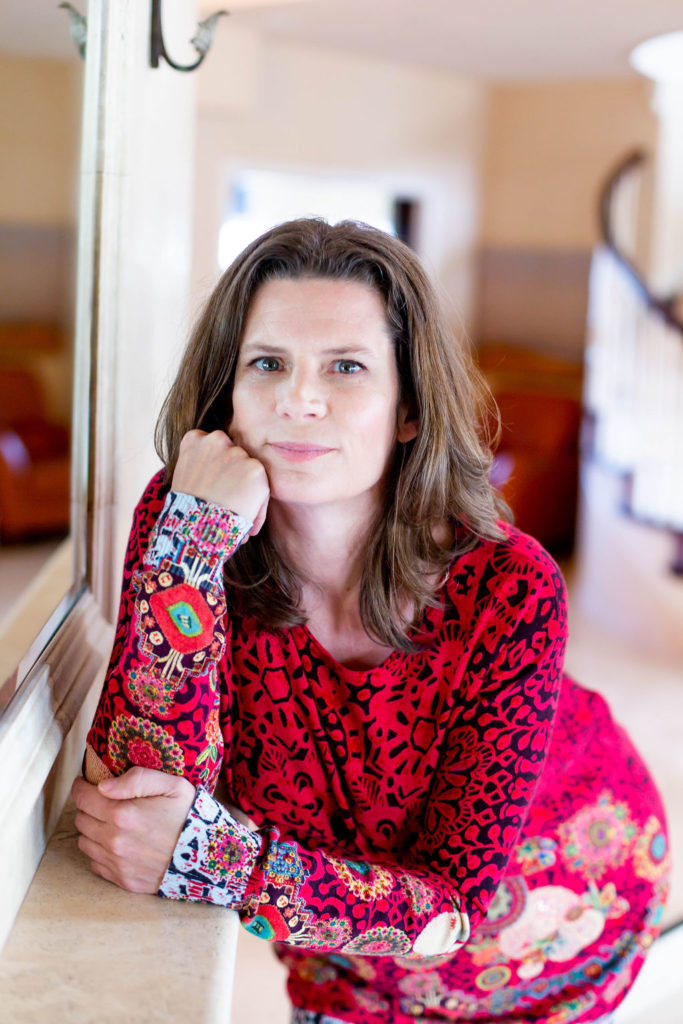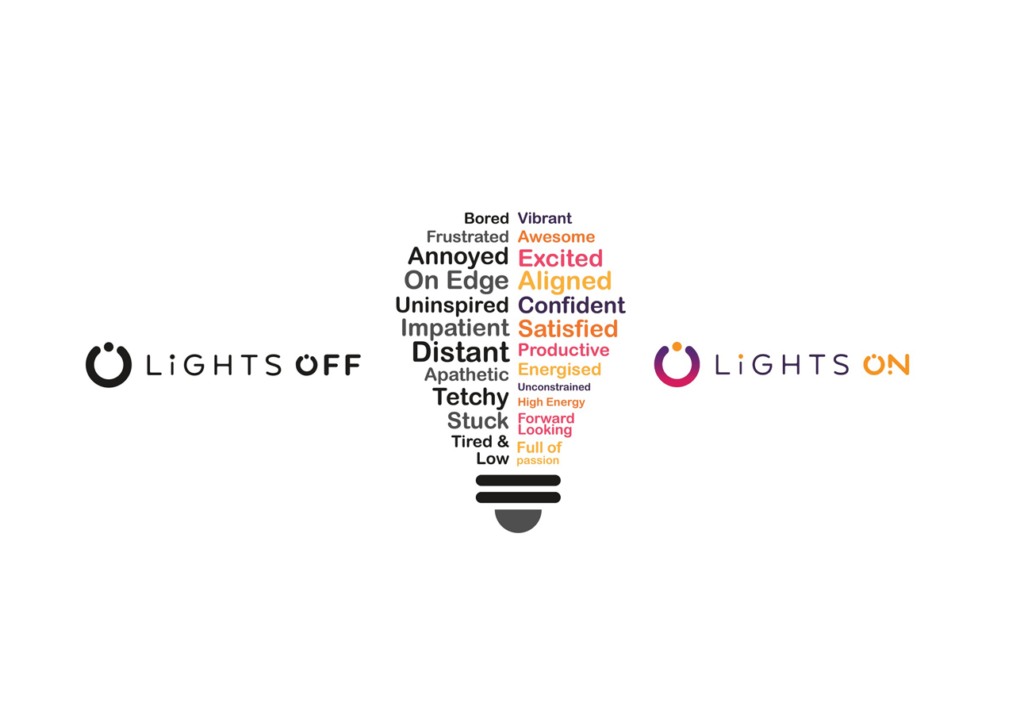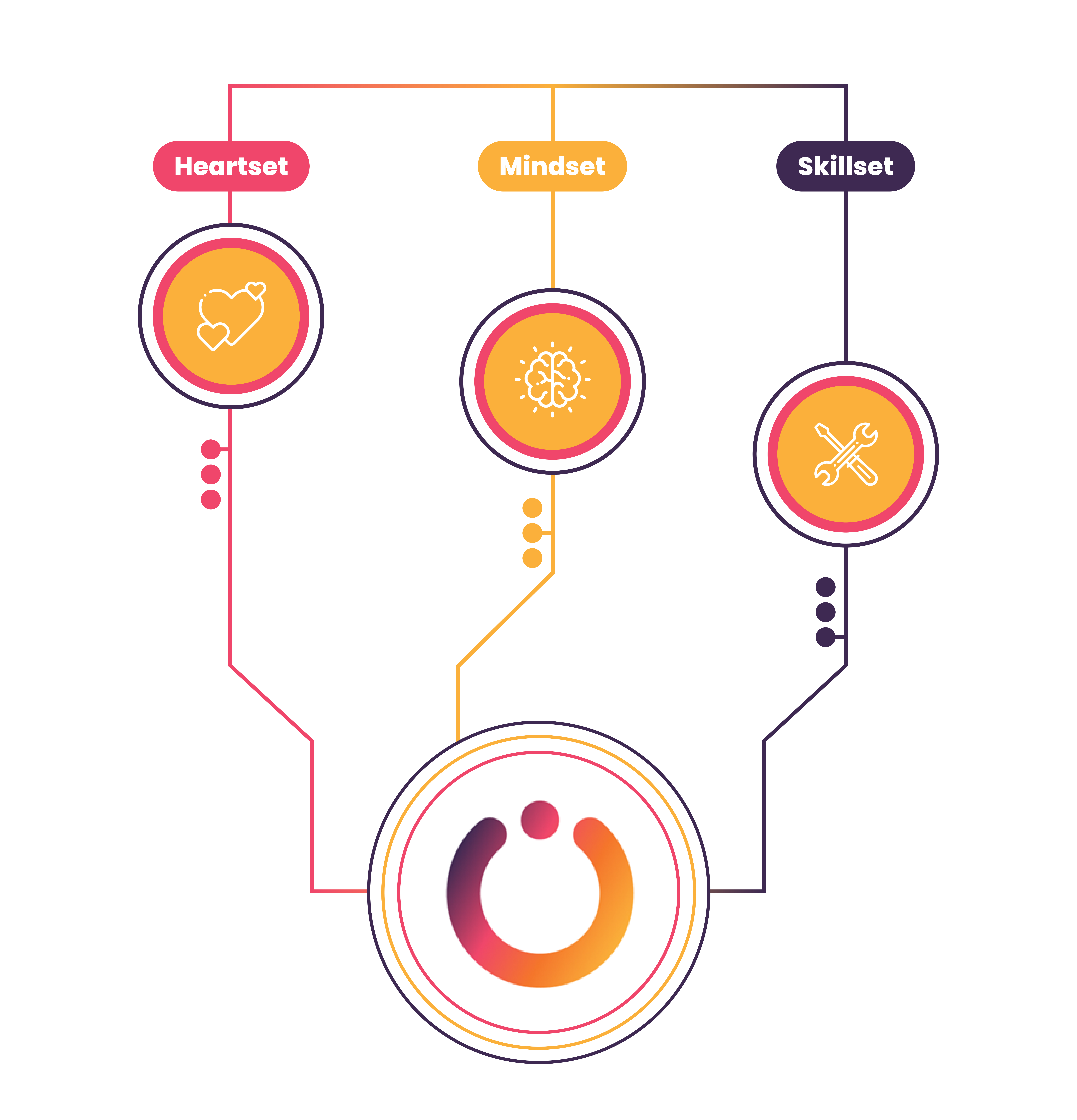Education Provider Voice 10
Julia Black – Founder of an Online Creative Learning Space

Julia Black is a social entrepreneur, a Master Neurocoach and Education Changemaker. She works with parents to lead their children to be highly motivated, independent, passion-led learners using her unique Lights On® Learning 1-3-5 formula.
Her adventure as an accidental educationalist began when her daughter, age just 7 years old, began to feel dispirited at school, describing her learning as fenced in. She started experiencing anxiety and not wanting to go to school, as a result. Like any parent who sees her child’s lights go out, she knew something had to change. So she put her successful filmmaking career aside and embarked upon a life-time adventure exploring the most cutting-edge educational practices, neuroscientific developments and mental wellbeing research.
In 2013 she set up her first creative learning centre, Explorium, working with 1000s of children over a 5 year period. In 2018 she took her work online to reach families around the world who were looking for education alternatives, and wanted to supplement their children’s education with a more leading edge approach. She now hosts an online global community, The Lights On® Universe, where parents gather to learn how to use her 1-3-5 Lights On® formula to spark their family’s love of learning.
What is your Lights On® approach to education?
The world has changed and the way parents lead their families through their educational careers must also change. Lights On® Learning is a response to this global need for a more ‘inside-out’ approach. I have created a clear pathway, that one father describes as a ‘pathway that leads to heaven’, which redefines success away from academic grades to personal fulfillment, pursuing passions with purpose, and mental wellbeing. To help families play this inner game I have organised my tools, techniques and strategies into a systematic framework with her 1-3-5 formula:
1 metric to track internal mental, emotional and energetic states,
3 core components to light up a family’s neurocircuitry,
5 key dimensions to ensure a continuous journey of growth and development.
1 METRIC – to flick the switch
The Lights On® Metric is simple to use, easily understood by children as young as 4 years old, and enables a family to track their internal mental, emotional and energetic states. When a family become conscious learners they create from the inside-out and play an inner game of success.

- Lights On is a state of creation, where learning is exciting and stimulating.
- Lights Off signifies survival mode, where emotions with a low vibration often disrupt learning.
What makes Lights On® Learners stand out is their ability to transform Lights Off thoughts, emotions and energy from survival to growth mode. When parents become aware of how to use both Lights On and Lights Off Potentials they open the doors to unprecedented growth.
A child who is Lights On can learn in any learning environment. A child who is Lights Off, on the other hand, can’t learn in even the most creative of educational settings. So this is our starting point for all Lights On® Families, mastering their inner world to create the future reality they desire. Using our Lights On® Metric as a recalibration tool allows for real-time growth.
3 COMPONENTS to supercharge learning
The 3 key components to light up a family’s neurocircuitry are: Heartset, Mindset, and Skillset. When connected and used together these components create a harmonious rhythm of creation, growth and recharging that leads to exponential growth.

- Heartset – This refers to the emotional drive that fuels a child’s enthusiasm and engagement in learning. Think of it as an internal power source fuelled by their curiosities, passions and purpose.
- Mindset – This is the mental framework that enables transformative thinking to shape how a child approaches challenges, perceives their abilities, and aims for success.
- Skillset – These are the practical skills and abilities your child develops through action. It’s where ideas become tangible outcomes and dreams turn into reality.
5 DIMENSIONS for exponential growth
The 5 in the formula refers to our LEARN model which uses five core dimensions to guide a family’s transformation from passive consumers to inspiring creators. Lights On® Learning isn’t linear, so accelerated and exponential potential can become the norm. Families who follow this success path ignite a lifelong love for learning and enjoy continuous growth throughout their lifetime.

What does the Lights On® Universe offer?
The Lights On® Universe is an online community for parents who want to use the 1-3-5 formula to integrate Lights On® Learning into their homes. It is for parents committed to using the energizing power of our hearts, the expansiveness of our minds and the joy of being present in our bodies to unlock their families potential.
Hosted by me and my team through Mighty Networks, this private community provides a safe space for parents to learn how to create a culture of Lights On® Learning in their homes.
Access to the community includes entry level online training courses to learn how to use the one metric, three components and five dimensions. There are live monthly sessions with me and guest coaches to ensure parents are implementing the tools, techniques and strategies and experience real tangible results. Inside the community there are opportunities for parents to dive deeper into the ‘spirals of the LEARN model’ to bring about exponential growth in their families.
You can join the Lights On® Universe through a monthly or annual paid subscription.
What were the motivations behind Lights On® learning?
I began my journey into education when my daughter, age 4, started school. I realised school wasn’t ever going to be enough on its own, so I flexed the system to work for her and my son. This included flexi-schooling (in school for 4 days and learning at home for 1 day per week), home educating for a while, and also flexing within school itself.
When my daughter was age 9, we reached a crisis point in her mental health and I took her out of school. I had been heavily involved in learning about education, as a governor, Chair of the PTA (winning the NCPTA Gold Star Reward for ‘Changing the Life of the School’) and as a Project Manager for a Creative Partnerships project with 5 Somerset schools.
I opened up my own Creative Learning Centre, Explorium, in the old school building in my village and brought my vision for education to children who were home educated, flexi-schooled, or in full time school. Schools approached us to do group work with students they struggled to engage or extend. We worked with over 15 local schools and in 2016 open up a centre on site at a secondary school. This is where I understood the scale of the learning crisis on a much deeper level and closed down my two centres to go entirely online. I realised that where the real difference could be made was within a family’s home. If we could help them create a culture of learning and growth then it would totally transform their family.
The more I understood how quickly we can ignite a love of learning and activate human potential, the more I locked into my mission to get 10 million families learning with their lights well and truly switched on.
Why are you interested in progressive education?
My moonshot vision is that mental health isn’t a problem in our schools in the first place. To achieve this we have to radically change the way we think and approach learning and change our relationship to mental wellbeing. Both Lights On and Lights Off states are important for learning and growth so it is important to not make the Lights Off state into a problem. My work has shown that our potential is locked up in this state, and learning how to harness it is a gamechanger for what we can achieve in life.
Contrary to the narrative out there about the education system being broken, my view is that the way we are using it is broken. When families create a culture of learning within their homes, their children can access learning in a whole new way. So I propose a much more collaborative approach between parents and educators and a more empowered narrative if we want to create real change. This is why I guide parents to shift from a focus on the external learning environment, ‘outside-in’ to the internal learning environment, ‘inside-out’.
In your opinion what are the main challenges of our current school system?
I think we are looking at education in the wrong way. Top down, outside-in and separating mental health and learning as separate disciplines. There is also a very strong narrative that disempowers teachers, parents and students, which is the system is broken and we can’t do anything about it. When we engage in that narrative we start with the assumption that we have to ‘fix it’ in order to ‘solve it’. That to me sounds heavy and definitely ‘Lights Off’ – it’s too big a ‘problem to tackle’. So we’ve all got convenient excuses as to why we continue to ‘fight against it’ calling for change but don’t actually make any. Let’s get on and make the change happen because we know what we need to do and every stakeholder is responsible for the future direction.
When we step outside of the box and focus in on opportunities instead we can make change fast. There are three main growth opportunities I share with parents, which are equally valid for educators:
Growth Opportunity 1: Energise Learning with Our Heart’s Intelligence
When someone learns what they love, they naturally tune into their curiosity and extend beyond the edges of their current abilities. Learning driven by our heart’s intelligence isn’t a soft option – it’s a powerful one. When a child is guided with passion and purpose, they become self-motivated explorers. Now capable of unlocking continual spirals of learning and growth, they experience a range of emotions, from frustration, anger and fear to happiness, love, joy and peace. These emotions significantly shape their growth.
Growth Opportunity 2: Leverage The Full Range Of Emotions for Growth
Learning to feel strong emotions and use them intentionally will enable a family to set an energetic tone for success. Emotions aren’t just reactions – they are signals that enhance and extend the learning experience. High vibe emotions, such as love, joy and gratitude, can spark creativity and enhance skill development. On the other hand, low vibe emotions, like frustration, anger and fear, can fuel mindset growth. By recognizing and harnessing the full range of emotions, children can improve their cognitive skills, memory, executive function and self-regulation.
Growth Opportunity 3: Use Negative Thought Patterns To Accelerate Learning
Negative thought patterns create a glass ceiling on human potential. Shining a spotlight on these automated neural networks reveals the hidden potential behind the limiting beliefs. Learning to use an effective rewiring technique supercharges a family’s personal growth and puts them on a path to mastery. A family of conscious learners knows how to use their brains’ neuroplasticity to learn and elevate their success through heart-brain coherence.
When these growth opportunities are integrated into educational strategy they supplement and enrich a family’s school or home education and place mental wellbeing centre-stage of an ordinary child’s extraordinary success. Learning in this way is like having a superpower.
I’ve designed Lights On® Learning to supplement and enhance traditional education, rather than conflict with it. When parents create a supportive, growth-oriented environment at home they facilitate their child’s academic performance at school or within their home education. The skills, habits and mindsets developed through our 1-3-5 formula are universally beneficial and can be applied across all areas of life, not just academics. Equally a school could implement it through a 10% time initiative or after school clubs.
What are state schools doing well?
Mainstream education when done holistically provides an incredible service to families and there are great examples out there, all over the world. The question is how do we spread these models through the whole system. This is an opportunity I am 100% committed to because I believe all children have the right to learn in their own unique way, with their neurocircuitry absolutely lit up.
The backbone of my own educational philosophy when I started was based on what works in schools using real world learning, the 4Cs (Creativity, Collaboration, Communication and Critical Thinking), and growth tools like draft critique, portfolios and reflection. All of these strategies you can find in great mainstream schools. So there is a lot of hugely innovative practice that we can learn from and it is important to recognise that to shift the narrative from doom and gloom to one of possibility.
If you could make changes to the state education system, what would be your top priorities?
Part of my vision is for my Lights On® Metric to speed up the diffusion rate of innovation. Tracking your Lights On and Lights Off states shifts your focus upstream of outcomes to the thoughts, emotions and beliefs that result in the behaviour, action and achievements. It also clearly shines a spotlight on our readiness to learn. Families who are tracking their mental, emotional and energetic states in our community are gaining huge insights into themselves and their family of learners.
So my interest in progressive education is really about making mainstream changes around the world. I believe we can create a paradigm shift, where there is absolutely no going back. I take my role in that very seriously. Let’s just say I am healthily obsessed with human potential. As Artificial Intelligence is set to become a ‘billion times smarter than us’, there has never been a more important time to unlock our human advantage. I believe this lies in our heart’s intelligence and our ability to rewire our brains through the power of intentional thought. I do believe it will be parents who create the biggest shifts in the evolution of education, if we are courageous enough to do so.
Is there anything else you’d like to add?
Transitioning away from the traditional educational model can feel overwhelming and daunting, so I’d like to share a case study so you can see what Lights On® Learning looks like in practice.
From Fearful To Unstoppable In Under Six Months
Six-year-old Bryony was becoming scared to write to the point of physical sickness, dodging school and exhibiting anxiety. Once her mother, Nicky, joined our online program and implemented the LEARN model, Bryony’s transformation was exceptional.
Step 1 – LIGHTS ON: We found what ‘switched on’ Bryony’s lights was communicating her love for dinosaurs. We encouraged Nicky to foster Bryony’s exploration of these passions, igniting her heartset and enthusiasm for learning.
Step 2 – EXPLORE: Bryony engaged with her curiosity of dinosaurs and began sharing her knowledge in home-made books with drawings and a few sentences.
Step 3 – ACTIVATE: With her confidence restored, she began to activate her writing skills. Conversations around Bryony’s anxiety revealed her fear: ‘I’m no good at writing.’ We gave her the choice to either write ten words with no time limit or write as much as she could in ten minutes. This was to give her ownership and she chose to write ten words, no time limit.
Step 4 – REWIRE: She completed her task and we took this opportunity to rewire her success. By reflecting and celebrating her achievement, Bryony internalised in fact she was capable of writing and with practice, it could become easier.
Step 5 – NAVIGATE: Bryony started setting her own goals, taking full ownership of her learning journey.
Bryony’s transformation in just six months was astounding. She overcame her anxiety to write, gained confidence to set her own goals and the development in her handwriting skills was remarkable. It is clear from this tangible evidence that this is a child who feels completely different about herself and her ability to write.
This incredible shift was led by her mother using the power of Lights On® Learning to align her daughter’s Heartset, Mindset and Skillset.
Follow Julia Black and her adventures in Lights On® Learning
Instagram: @thelightsonmum and @lightsonfamilies
Facebook: @thelightsonmum and @lightsonfamilies
Blog: www.explorium.co.uk/blog
Community: Lights On Universe
Scorecard: Lights On Parent Scorecard

